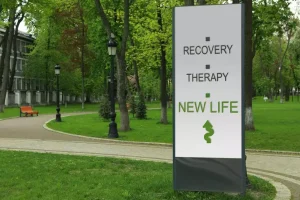
Research shows that grateful people are more empathetic and compassionate, which means being grateful may improve your communication and trust. You may also be more likely to attract good and supportive people who can help you in your recovery. One of the main obstacles to a successful recovery is avoiding triggers and cravings that can lead to relapse.
Support for Me and My Family
We must also become active stewards by caring for the natural world that already cares for us. The embrace earth gives us must be returned by our embrace of the earth, just as recovery from addiction is maintained by carrying the message of sobriety to those still in need. Gratitude is one of the core principles of Alcoholics Anonymous (AA) and other 12-step programs. https://ecosoberhouse.com/ It means being thankful for what you have rather than focusing on what you lack or what you have lost. Gratitude also means acknowledging the people who have helped you, such as your sponsor, peers, family, and higher power. Try setting a consistent schedule for your gratitude activity by doing it in the morning when you wake up or at night before you go to sleep.
- Have you ever become annoyed or frustrated by a person or something they’ve done?
- As you learn to incorporate gratitude into how you view your new life, you may find that your recovery isn’t as difficult as you once thought.
- It’s important to understand that the relationship you have with yourself will often be reflected in your relationships with others.
- The more you repeat these affirmations, the more you will internalize them and feel their effects.
Social Connections and Support
Gratitude helps promote the focus on channeling inspiration and motivation into sobriety. However, someone who practices gratitude can appreciate the benefits sober living will have in their life and be better able to maintain sobriety. In recovery, we are given the space to be grateful, but it still takes time to practice and train the mind to notice and cherish the beauty in life.

Cultivating Gratitude Through Rituals
It’s about expanding your perspective, about finding balance, about recognizing the good even as you navigate the difficult. It’s a practice, and like any practice, it takes time and patience to cultivate. But the impact of gratitude in recovery isn’t limited to individual success stories. This grassroots movement organizes gratitude walks, where recovering addicts and their supporters come together to share what they’re thankful for while exploring the city.
This means that even if we’re going through a tough time, we can still find things to be grateful for – whether it’s our health, our relationships, or the beauty of nature. Developing an attitude of gratitude comes easily for some and for others takes some gratitude in recovery practice and habit-building. However, no matter how you come by it, practicing gratitude in your daily life can transform it from one of doom and gloom to one of peace and joy. This is particularly true for people in recovery from alcohol or drugs.
Something to Feel Grateful For
It trains us to shift our focus outward and look to see how we can be of service to help others. Big Book is a central theme, however being grateful may not come easily at first. But like anything else, we can work on developing an “attitude of gratitude” until it becomes a habit. There is no reason we would be able to recover from the brain changes caused by addiction, but sobriety is a freely available gift. So too is the air we breathe, clear water from natural springs, fruits, nuts, roots, and grains given to us by the earth. Humans are newcomers on earth, wholly dependent on its freely given bounty.

Gratitude Helps Recovery
Gratitude Works for Everyone—Not Just Sober Folks

